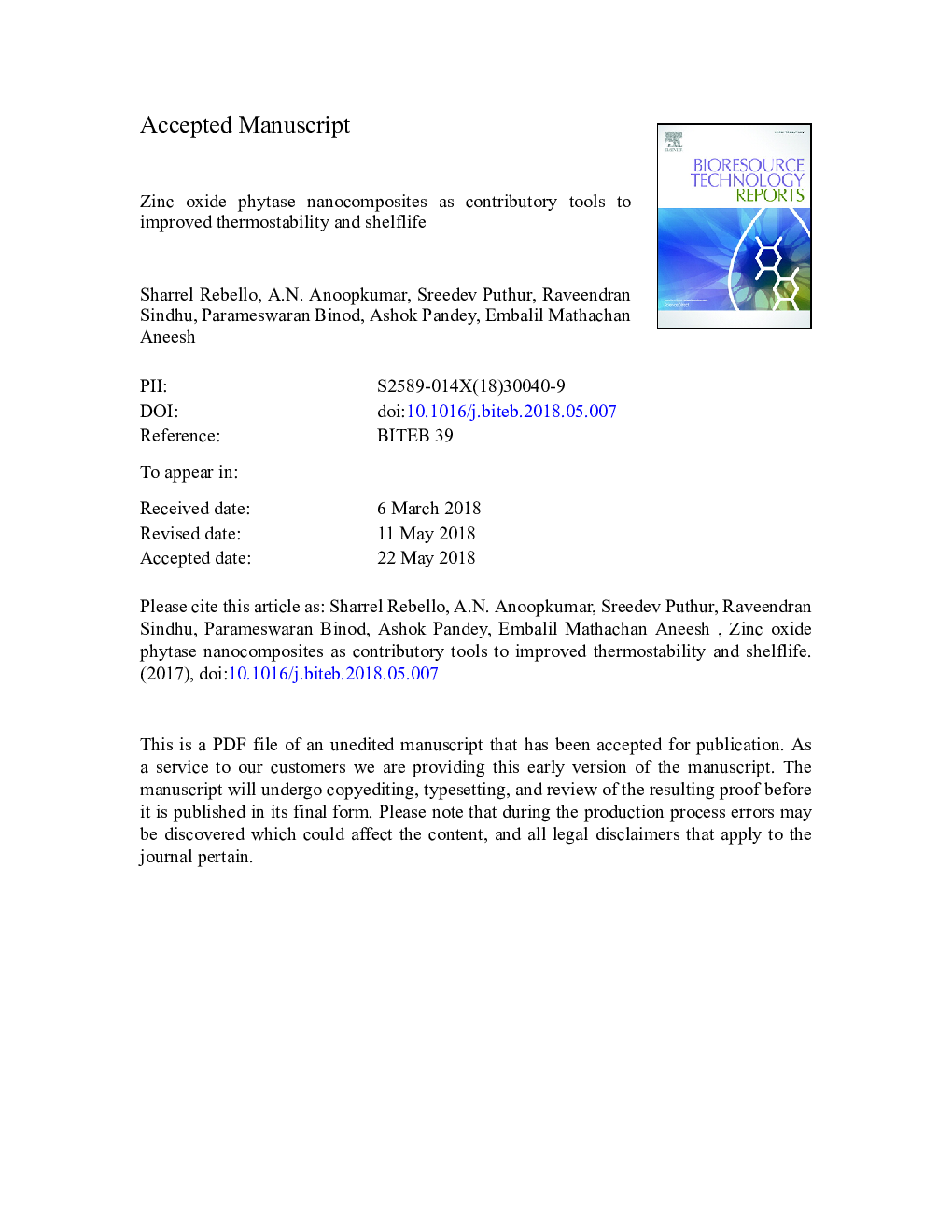| Article ID | Journal | Published Year | Pages | File Type |
|---|---|---|---|---|
| 6482521 | Bioresource Technology Reports | 2018 | 29 Pages |
Abstract
The current study suggests the utility of ZnO nanoparticles to increase the thermotolerance of phytase enzymes; thereby aiding their effective utilization to provide better phosphate uptake when applied in animal feeds. Microbial isolates with predominant phytase activity were isolated from industrial wastewater to obtain a promising thermotolerant isolate of Penicillium decumbens. The purified phytase showed activities at mash preparatory temperature (32.59â¯Â±â¯0.045â¯Umlâ1â¯minâ1 at 55â¯Â°C), animal feed pelletising temperature (37.83â¯Â±â¯0.127â¯Umlâ1â¯minâ1 at 80â¯Â°C) and steam sterilization temperature (18.56â¯Â±â¯0.027â¯Umlâ1â¯minâ1 at 100â¯Â°C) of animal feeds as per standard phytase assays. The supplementation of ZnO nanoparticles found to increase thermostability of phytase from 18.56â¯Umlâ1â¯minâ1 to 30.5â¯Umlâ1â¯minâ1 at 100â¯Â°C. The antibacterial role of the nanocomposites was checked against human pathogens to obtain satisfactory results against standard antibiotics. Thus the incorporation of ZnO nanoparticles in combination with phytase provided a dual benefit of increasing its thermostability and antimicrobial property thereby increasing its shelflife.
Related Topics
Physical Sciences and Engineering
Chemical Engineering
Bioengineering
Authors
Sharrel Rebello, A.N. Anoopkumar, Sreedev Puthur, Raveendran Sindhu, Parameswaran Binod, Ashok Pandey, Embalil Mathachan Aneesh,
